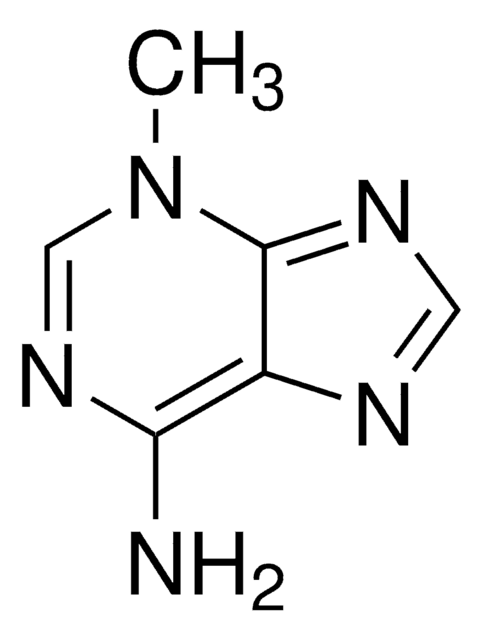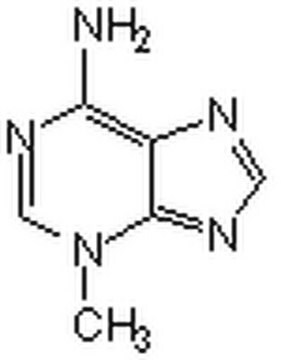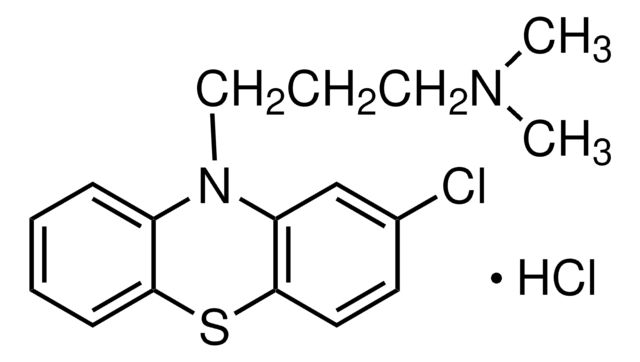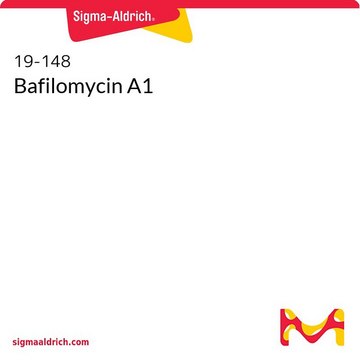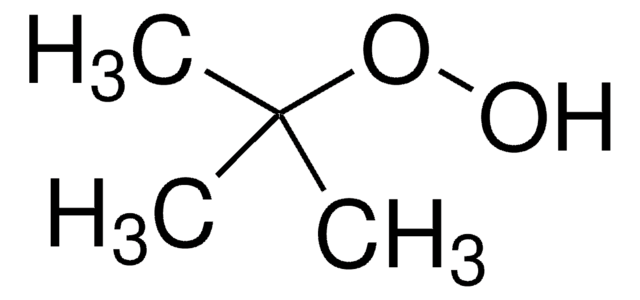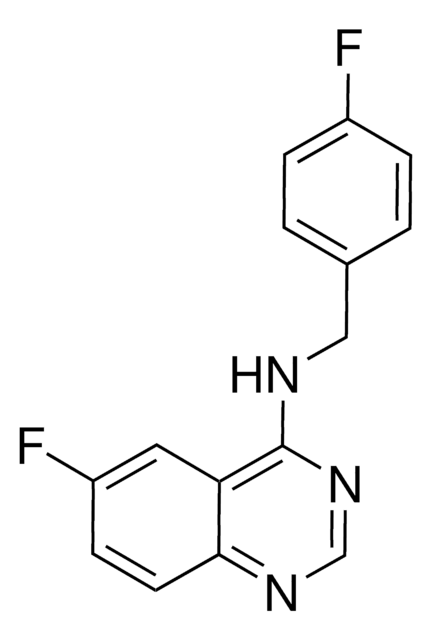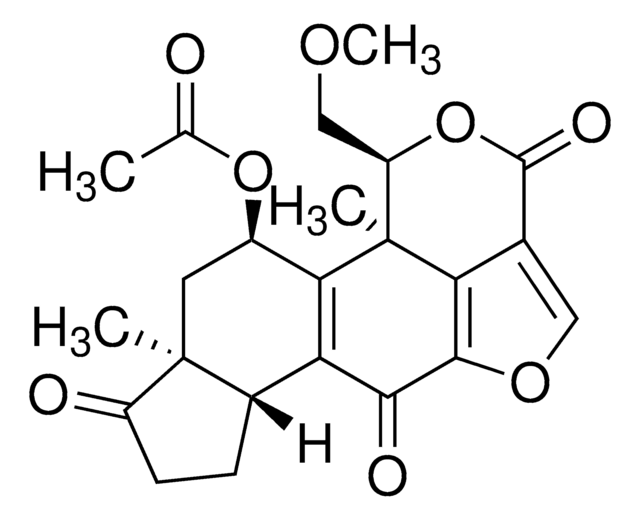SAE0107
3-Methyladenine Ready made solution
≥98% (HPLC), 7.5mg/ml (50mM) in MES buffer, Autophagy inhibitor
Sinonimo/i:
3-MA, 6-Amino-3-methylpurine, autophagy inhibitor
Autenticatiper visualizzare i prezzi riservati alla tua organizzazione & contrattuali
About This Item
Codice UNSPSC:
12352202
NACRES:
NA.51
Prodotti consigliati
Saggio
≥98% (HPLC)
Stato
liquid
Concentrazione
7.5 mg/mL
Condizioni di spedizione
ambient
Temperatura di conservazione
−20°C
Categorie correlate
Descrizione generale
3-Methyladenine (3-MA) is a methylated derivative of adenine that has been used as an In vivo marker for the methylation of DNA. 3-Methyladenine and 7-methylguanine are the two main N-methylpurines formed in DNA upon exposure to methylating agents. 3-MA is removed from damaged DNA via the DNA base excision repair pathway, which begins with the enzyme N-methylpurine DNA glycosylase. The dependence of 3-MA repair on nucleotide excision repair in mammalian cell lines has been studied.3-MA have been widely used as autophagy inhibitor based on its inhibitory effect on class I and class III PI3K activity, which is known to be essential for induction of autophagy. 3-MA blocks class I PI3K persistently, whereas its suppressive effect on class III PI3K is transient, understanding the dual role of 3-MA in autophagy thus suggests that caution should be exercised in the application of 3-MA in autophagy study.
Furthermore, 3-MA is also capable of making the reduction of lymphocyte number caused by chronic stress rebound, implying that inhibition of autophagy can rescue chronic stress-induced immunosuppression.
Autophagy has been reported to play an important role in the 3, 4-Methylenedioxymethamphetamine MDMA-induced neurotoxicity in the mixed neuronal-glial primary culture and it was found that 3-MA ameliorate MDMA-induced autophagy, SERT loss, HPA axis dysfunction, and depressive behaviors.
Furthermore, 3-MA is also capable of making the reduction of lymphocyte number caused by chronic stress rebound, implying that inhibition of autophagy can rescue chronic stress-induced immunosuppression.
Autophagy has been reported to play an important role in the 3, 4-Methylenedioxymethamphetamine MDMA-induced neurotoxicity in the mixed neuronal-glial primary culture and it was found that 3-MA ameliorate MDMA-induced autophagy, SERT loss, HPA axis dysfunction, and depressive behaviors.
Applicazioni
3-Methyladenine (3-MA) is used to inhibit and study the mechanism of autophagy (lysosomal self-degradation) and apoptosis under various conditions. 3-MA inhibits autophagy by blocking autophagosome formation via the inhibition of type III Phosphatidylinositol 3-kinases (PI-3K). For use as an autophagy inhibitor, 3-MA is typically used at a concentration of 5mM.
Nota sulla preparazione
3-Methyladenine ready made solution is provided at 50mM (7.5mg/mL) concentration in MES buffer.
It is recommended to store 3-methyladenine readymade solution at -20C.
In case percipitates are formed upon thaw, use sonication and heat to get the product back into solution.
It is recommended to avoid freeze thaw cycles.
When stored properly 3-Methyladenine readymade solution should be stable for 2 years.
It is recommended to store 3-methyladenine readymade solution at -20C.
In case percipitates are formed upon thaw, use sonication and heat to get the product back into solution.
It is recommended to avoid freeze thaw cycles.
When stored properly 3-Methyladenine readymade solution should be stable for 2 years.
Codice della classe di stoccaggio
12 - Non Combustible Liquids
Classe di pericolosità dell'acqua (WGK)
WGK 2
Punto d’infiammabilità (°F)
Not applicable
Punto d’infiammabilità (°C)
Not applicable
Scegli una delle versioni più recenti:
Certificati d'analisi (COA)
Lot/Batch Number
Non trovi la versione di tuo interesse?
Se hai bisogno di una versione specifica, puoi cercare il certificato tramite il numero di lotto.
Possiedi già questo prodotto?
I documenti relativi ai prodotti acquistati recentemente sono disponibili nell’Archivio dei documenti.
I clienti hanno visto anche
Venkatesh P Thirumalaikumar et al.
Autophagy, 17(9), 2184-2199 (2020-09-25)
In nature, plants are constantly exposed to many transient, but recurring, stresses. Thus, to complete their life cycles, plants require a dynamic balance between capacities to recover following cessation of stress and maintenance of stress memory. Recently, we uncovered a
Il team dei nostri ricercatori vanta grande esperienza in tutte le aree della ricerca quali Life Science, scienza dei materiali, sintesi chimica, cromatografia, discipline analitiche, ecc..
Contatta l'Assistenza Tecnica.